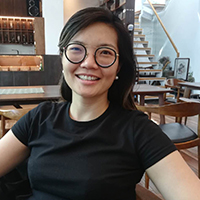
Stella Christie Ph.D.
Research Chair, Tsinghua Brain and Intelligence Laboratory
Professor (with tenure), Department of Psychology, Tsinghua University
Director, Tsinghua University Child Cognition Center
Why are we smart? My hypothesis is that we are smart because we think relationally. From understanding words like mother and bigger to mathematical operations to map reading, knowing relations is indispensable. The goal of my research is to chart this fundamental aspect of cognition—the relational mind—in three lines of investigation:
(1) The initial state: what are the basic relations that humans and/or other animals possess?
(2) The learning tools: how do we learn to become relational thinkers?
(3) An application—the social relational mind. How do we acquire and process complex social relations?
Using behavioral data from young human children and great apes, my lab has discovered tantalizing similarities and differences between us and other animals’ relational cognition. Eventually, I want to understand how the initial states interact with the learning tools—language and comparison process—to produce a smart mind.
Degrees
Northwestern University, Ph.D., 2010
Harvard University, B.A. Magna Cum Laude with Highest Honor, 2004
Appointments
Tsinghua University, Research Chair; Associate Professor with Tenure, 2018 - current
Swarthmore College, Associate Professor with Tenure 2018; Assistant Professor, 2012 - 2018
Stanford University, Visiting Scholar, 2015 - 2016
University of British Columbia, Postdoctoral Fellow, 2010 - 2012
Selected Publications
Christie, S. (2017). Structure mapping for social learning. Topics in Cognitive Science, 9, 758-775.
Christie, S., Gentner, D., Call, J., & Haun, D. (2016). Sensitivity to relational similarity and object similarity in apes and children. Current Biology, 26(4), 531- 535.
Noyes, A. & Christie, S. (2016). Children prefer diverse samples for inductive reasoning in the social domain. Child Development, 87(4), 1090-1098.
Christie, S. & Gentner, D. (2014). Language helps children succeed on a classic analogy task. Cognitive Science, 38(2), 383-397.
Christie, S. & Gentner, D. (2010). Where hypotheses come from: Learning new relations by structural alignment. Journal of Cognition and Development, 11(3), 356-373. 2010 Editor’s Choice Award for Best Article.
Contact Information
Email: christie@tsinghua.edu.cn
Office: Room 517, Building 4 (Lyu Dalong Building)Ziqiang Science & Tech Building, Tsinghua University, Haidian District, Beijing 100084, P.R. China
Developmental science for the public:

website: https://www.tsinghuakidlab.com/en
